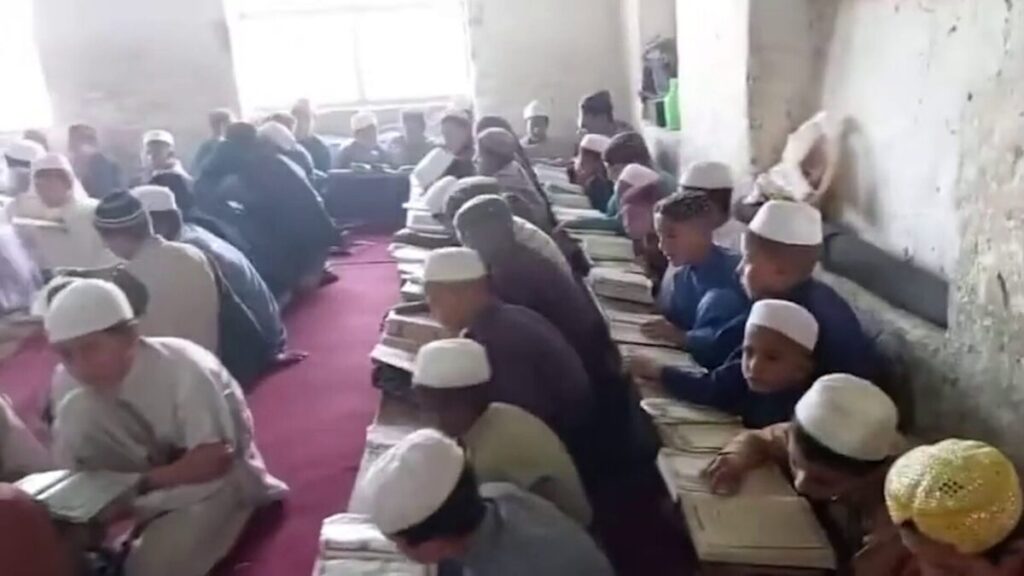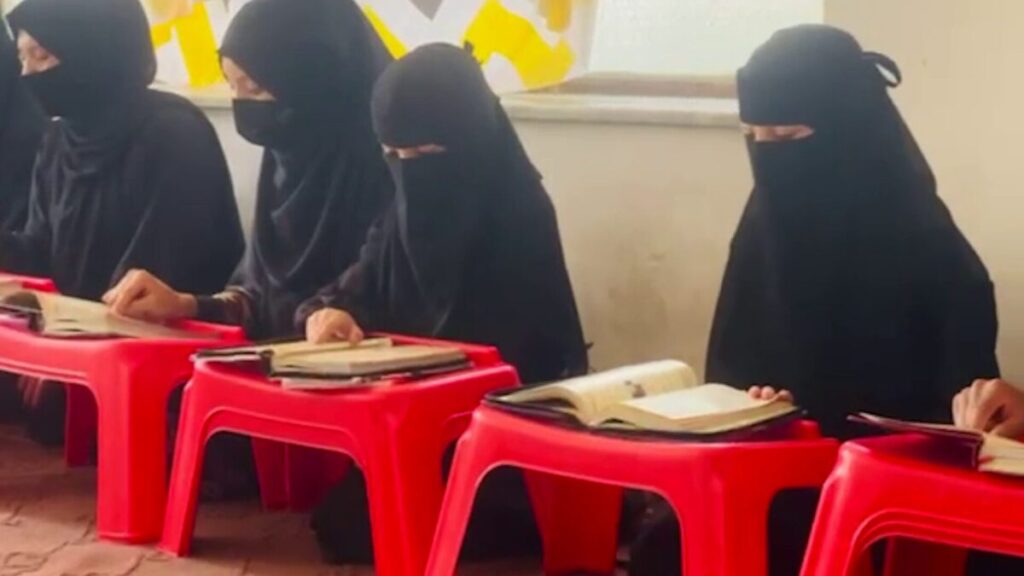Taliban has commenced the construction of at least nine new jihadi madrasas over the past month, according to information released by the Taliban-run Ministry of Education. These religious schools have been established across several provinces, including Badakhshan, Panjshir, Paktika, Ghazni, and Baghlan.
These madrasas, aligned with the Taliban’s leadership, are reported to include military training and radicalization alongside traditional religious education. The rapid establishment of these institutions has raised concerns among students and education advocates who argue that madrasas cannot substitute for the comprehensive education provided by regular schools.

“I studied the Holy Quran and religious books in a madrasa, but this does not replace my school. When schools are closed, I cannot achieve my dreams,” said Marwa, a student affected by the closure of regular schools.
Another student, Nargis, voiced similar concerns: “I attend a madrasa and study the Quran and Islamic education, but religious lessons cannot replace our schools.”

A recent United Nations report highlighted that the Taliban leadership is actively encouraging students to attend madrasas. According to UN Secretary-General António Guterres, the Taliban currently operates over 7,000 official madrasas across Afghanistan. Between November 2023 and February 2024 alone, nearly 2,500 students—many of whom are girls deprived of access to traditional schools and universities—graduated from these institutions.
“Due to the changes in our society, girls are now more interested in religious lessons since educational opportunities have been closed to them,” said Mubashira, head of a religious school, reflecting on the shift in education priorities under the Taliban regime.
Despite a noticeable reduction in detailed reporting by Taliban-run media on the activities and expansion of these madrasas compared to previous years, the Taliban’s political and military leadership continues to focus heavily on these religious institutions. In one of his rare provincial visits last year, Taliban leader Hibatullah Akhundzada met with teachers of jihadi madrasas in Nimroz, underscoring the importance placed on these schools.
The increasing number of jihadi madrasas raises significant concerns about the future of Afghanistan’s youth. Experts warn that the Taliban’s focus on these religious schools could foster an environment of religious extremism and radicalization, posing severe risks to the younger generation.
“With the situation persisting in Afghanistan, the Taliban might believe that if schools are closed, they can replace them with religious madrasas, which is extremely dangerous for Afghanistan’s youth,” said Najeeb Rahman Shamal, a political analyst.
This development comes amid revelations from the U.S. Special Inspector General for Afghanistan Reconstruction (SIGAR), which reported that the Taliban has been misappropriating funds from humanitarian assistance to finance these jihadi madrasas. The report has intensified concerns about the long-term implications of the Taliban’s educational policies on Afghanistan’s social fabric.





